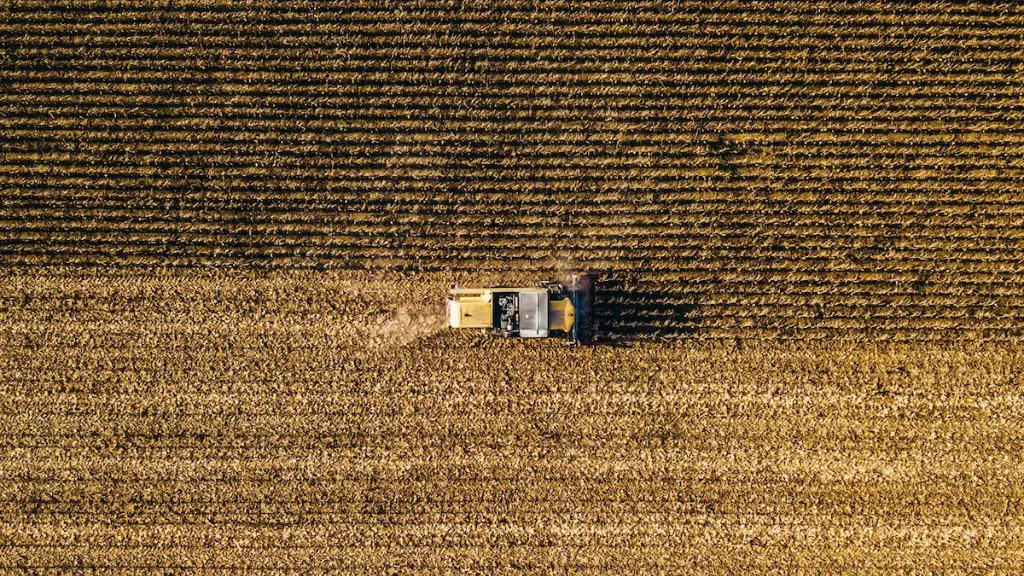Agriculture is one of the most significant economic activities in the world. It encompasses the production of food, feed, fuel, and fibers through farming, forestry, and fishing. The global market value of agricultural products is estimated to be around $3.2 trillion – a staggering number that represents 8 percent of the total world GDP. It has been estimated that agriculture employs 40 percent of the world’s population, ranging from large-scale farmers to smallholder subsistence farmers. What’s more, agriculture is the key to eliminating poverty. Agricultural growth has been shown to reduce poverty by 17 percent more than other sectors, such as manufacturing, health, and education.
In highly developed countries, agriculture is a high-tech industry and a major component of both national and global economies. In the United States, for example, crop and livestock production is estimated to exceed $400 billion dollars. It is one of the country’s largest industries and accounts for around 17 percent of its GDP. The country is also a major food exporter to countries all over the world, importing and exporting over $50 billion of agricultural products each year.
Agriculture is not just an economic activity. It touches every aspect of life, from providing affordable food to helping to preserve biodiversity. In addition, agricultural activities can affect the environment in both positive and negative ways. For example, maintaining healthy soils can reduce soil erosion, which is critical for sustaining the health of farmlands and water sources, while pesticides and fertilizer runoff can harm water quality or reduce biodiversity.
In developing countries, food insecurity continues to be a major issue, with over 820 million people thought to be living with it. Agriculture is essential for improving food security, nutritional health, and reducing poverty in these countries. Programs to increase agricultural productivity, such as improved seeds and crops, better fertilizer, enhanced irrigation and improved infrastructure can have an immediate and long-term impact.
Agriculture is an essential part of the world economy, and its importance cannot be overstated. Agriculture provides sustenance for billions of people, supports the livelihoods of millions, generates huge amounts of wealth, and is fundamental for protecting and preserving our environment. In short, it is a keystone of our global society and an integral part of our future.
Climate Change Impacts
Climate change is expected to have a significant impact on the global agricultural sector. Rising temperatures, extreme weather events, and climate-induced droughts are projected to reduce crop yields, worsen pest and disease outbreaks, and increase the vulnerability of smallholder farmers, resulting in increased food insecurity. Climate change can also affect livestock productivity and food safety, with consequences for both the economy and human health. Adaptation strategies, such as improved crop varieties and efficient irrigation systems, can help to reduce these risks and build the resilience of the agricultural sector to climate change.
Agricultural Economics
Agricultural economics is the application of economic concepts and techniques to the production and distribution of food and fiber products. The key areas of study include market structure, pricing, policy, management and international trade. The goal of agricultural economics is to develop economic models and theories to analyze how farmers and the agricultural sector adjust to economic and environmental changes, and how they interact with the global economy.
Precision Agriculture
Precision agriculture is an integrated system of technologies and management practices that aim to optimize agricultural production. It involves the use of GPS-enabled mapping and varies application of inputs such as fertilizers, pesticides, and water. The goal is to reduce waste, increase efficiency, and improve crop yields. The technology is already in use in many parts of the world and is expected to continue to shape the future of the agricultural sector.
Agricultural Technology
Advances in technology have revolutionized the agricultural sector. Technologies such as GPS-enabled tractors, crop sensors, and robotic harvesters have increased the efficiency and productivity of farms around the world. Moreover, the introduction of big data analytics has enabled farmers to gain a deeper understanding of their land, enabling them to make more informed decisions. In the future, these advancements are likely to be embraced by the entire industry.
Agriculture and The Environment
Agriculture can contribute to the deterioration of the environment, but it can also be part of the solution. Sustainable agricultural practices, such as the use of organic methods and techniques, can help to reduce its environmental impacts. In addition, the implementation of agroforestry systems and the restoration of degraded soils can help to preserve biodiversity, protect pollinators and sequester carbon.


